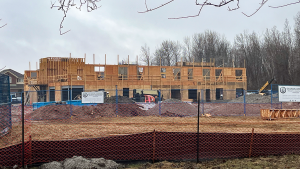BuildForce Canada has released a new course that aims to educate construction leaders about unconscious racial bias.
The online course, Introduction to Understanding Systemic Racism: A Guide for Leaders and Managers, aims to provide general awareness about systemic racism in the workplace and explains how inherent biases at the individual or organizational level may impact racialized communities.
It also recommends tools for change that can help organizations eliminate or reduce any unconscious biases that may exclude Black, Indigenous and People of Colour from opportunities.
Bill Ferreira, executive director of BuildForce Canada, explained the organization’s leadership was concerned that incidents of racism reported on construction sites were creating a perception that the issue was endemic to the industry.
“That is not the case. The construction industry has been forward-thinking in its approach to recruitment and retention, and it’s difficult to characterize the industry as some sort of monolith. It’s not. It’s a very large industry that employs 1.5 million Canadians, so there is going to be a diversity of views and a diversity of people.”
Ferreira stressed the course isn’t intended to tackle the broader issue of systemic racism, which he says is beyond the control of any one organization and instead needs to be tackled by the government.
“What we decided to do was develop a course that would give individuals in management positions in the industry a better understanding of what systemic racism is and also some tools to review their own perceptions of race and unconscious biases they may have that could impact their decision making.”
BuildForce created the course with input from an advisory committee composed of professionals from Black, Indigenous and People of Colour communities within the construction industry. It was developed specifically for leaders and managers.
“These were individuals that were, frankly, not only keen but became engaged quite early in the discussions around racism in general and the impact of racism on marginalized communities working within the construction industry,” said Ferreira.
The project saw input from people who not only were members of underrepresented groups, but who were also active in the construction community and approached the issue from a construction perspective.
“We are trying to provide tools for individuals in the construction industry to try and mitigate the impact of unconscious bias on decisions, as opposed to trying to tackle the broader societal question of systemic racism,” said Ferreira.
Course lessons explore a variety of subjects, including:
- the origins of systemic racism in Canada;
- how leaders and managers are affected by unconscious biases and stereotypes;
- how group dynamics can create obstacles for Black, Indigenous and People of Colour;
- organizational policies and processes that may unintentionally exclude Black, Indigenous and People of Colour from recruitment and career advancement;
- how organizations can compete more effectively by creating inclusive communications and marketing processes; and
- how organizations can develop inclusion practices and strategies.
Presented in an online format, it includes interactive elements, scenarios, videos and quizzes to enhance learning.
“The industry is quite engaged in trying to find ways to create more respectful and inclusive worksites. We reached out to communities that have been historically underrepresented in the construction industry and we have to ensure that there is a work environment that is welcoming to all individuals,” said Ferreira.
Information on how to take the course can be found on BuildForce’s website here.
Follow the author on Twitter @RussellReports.









Recent Comments